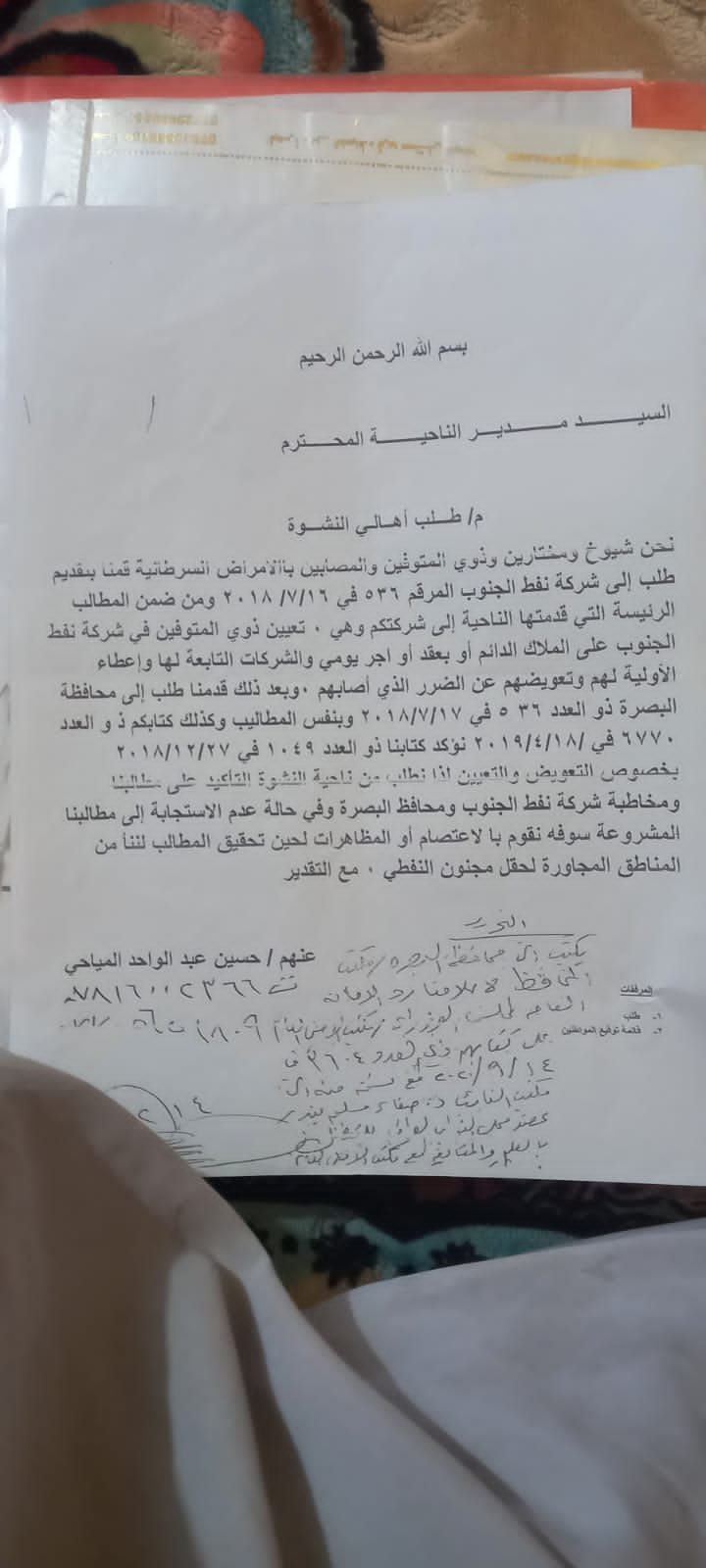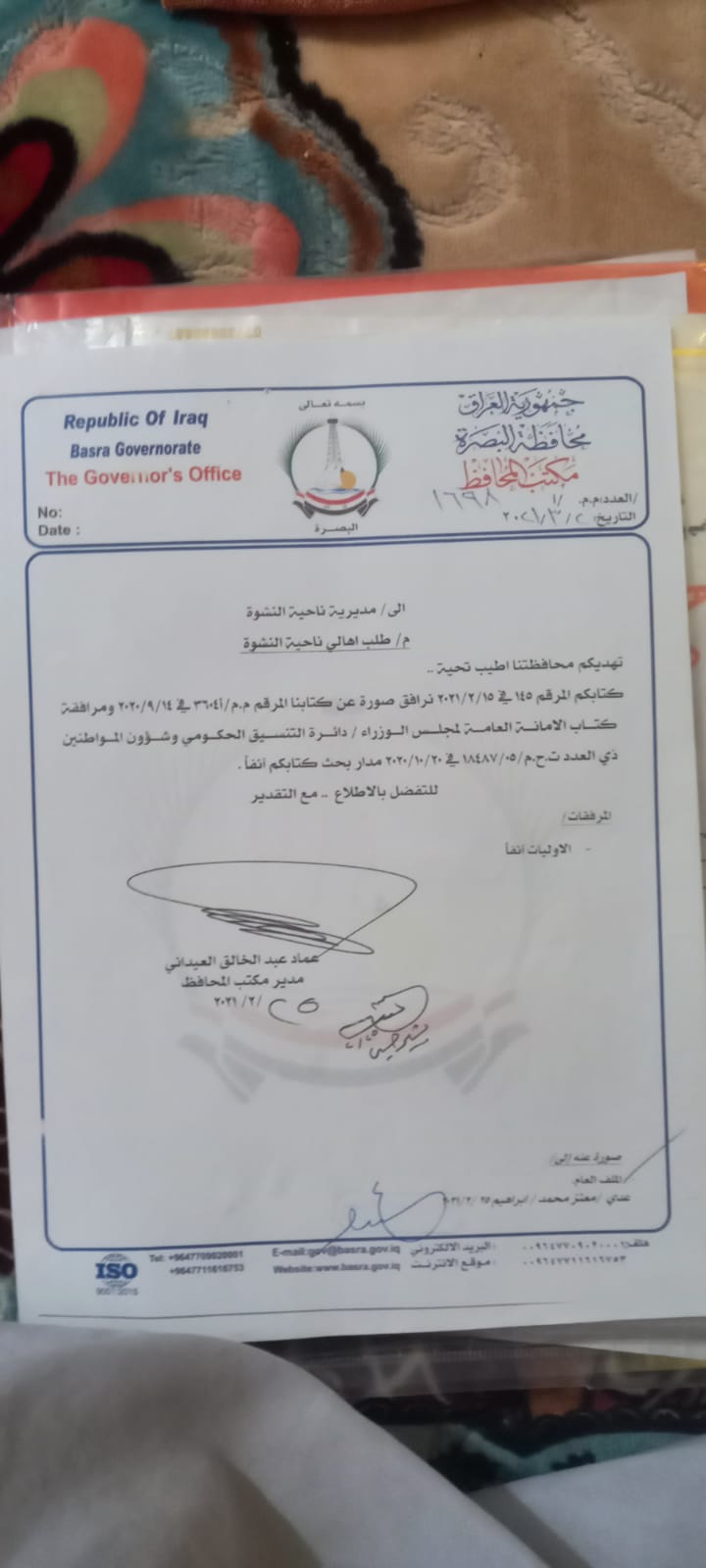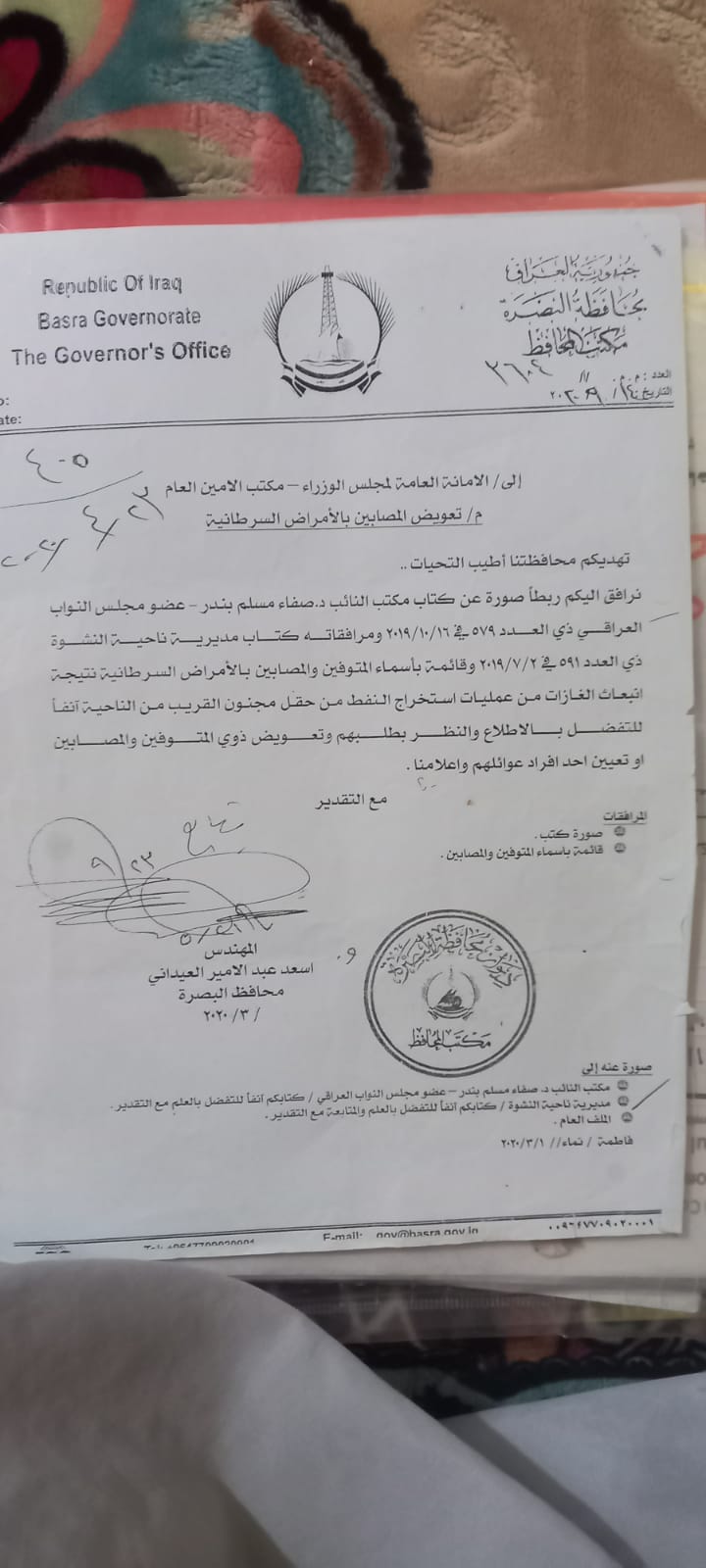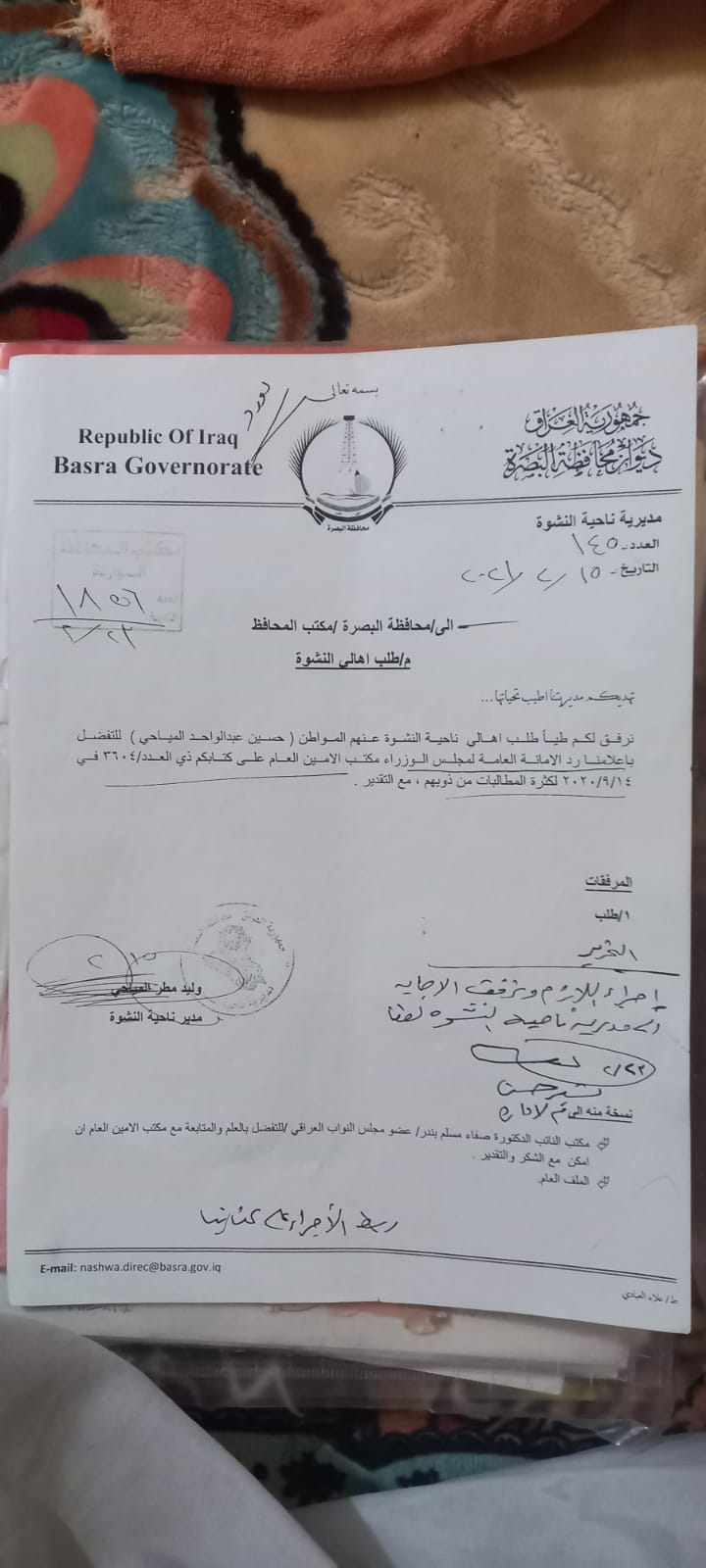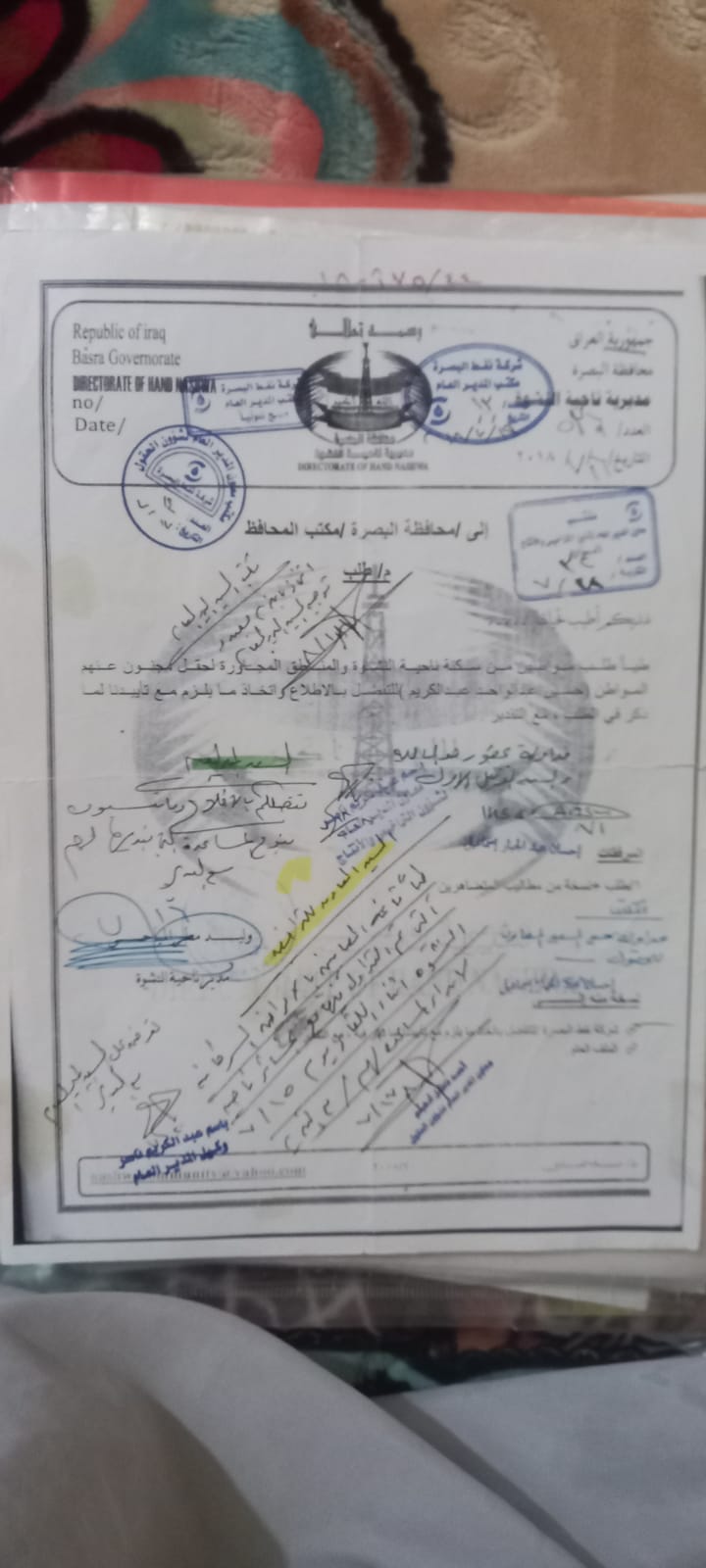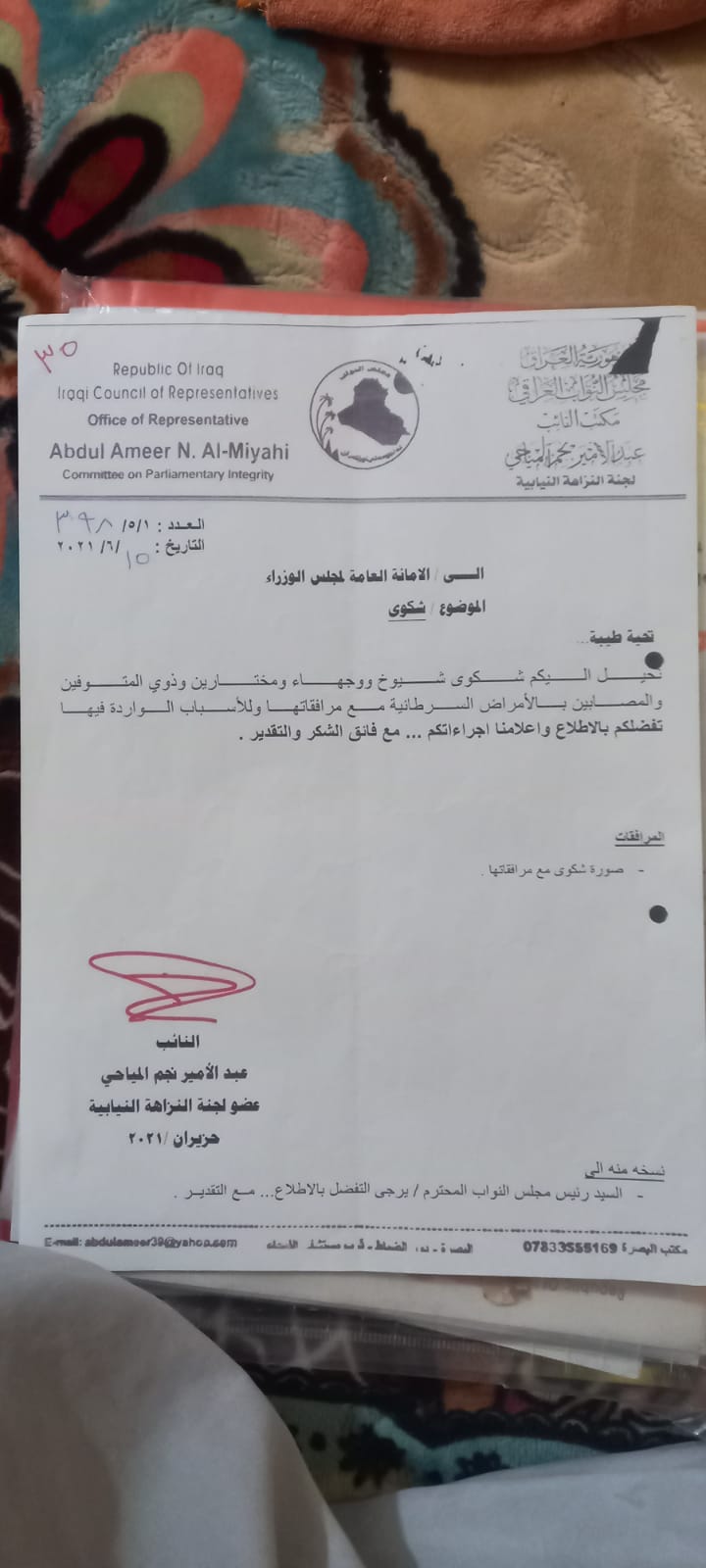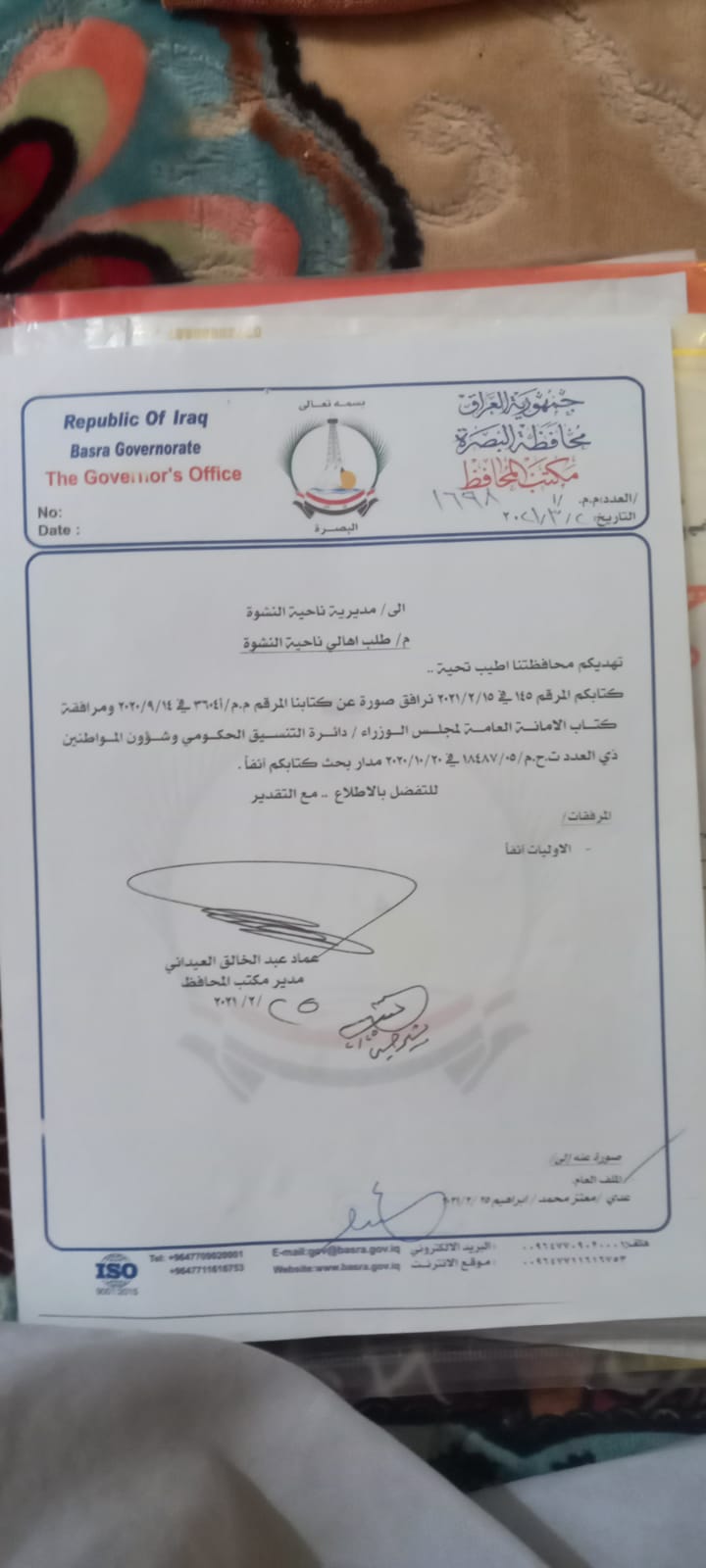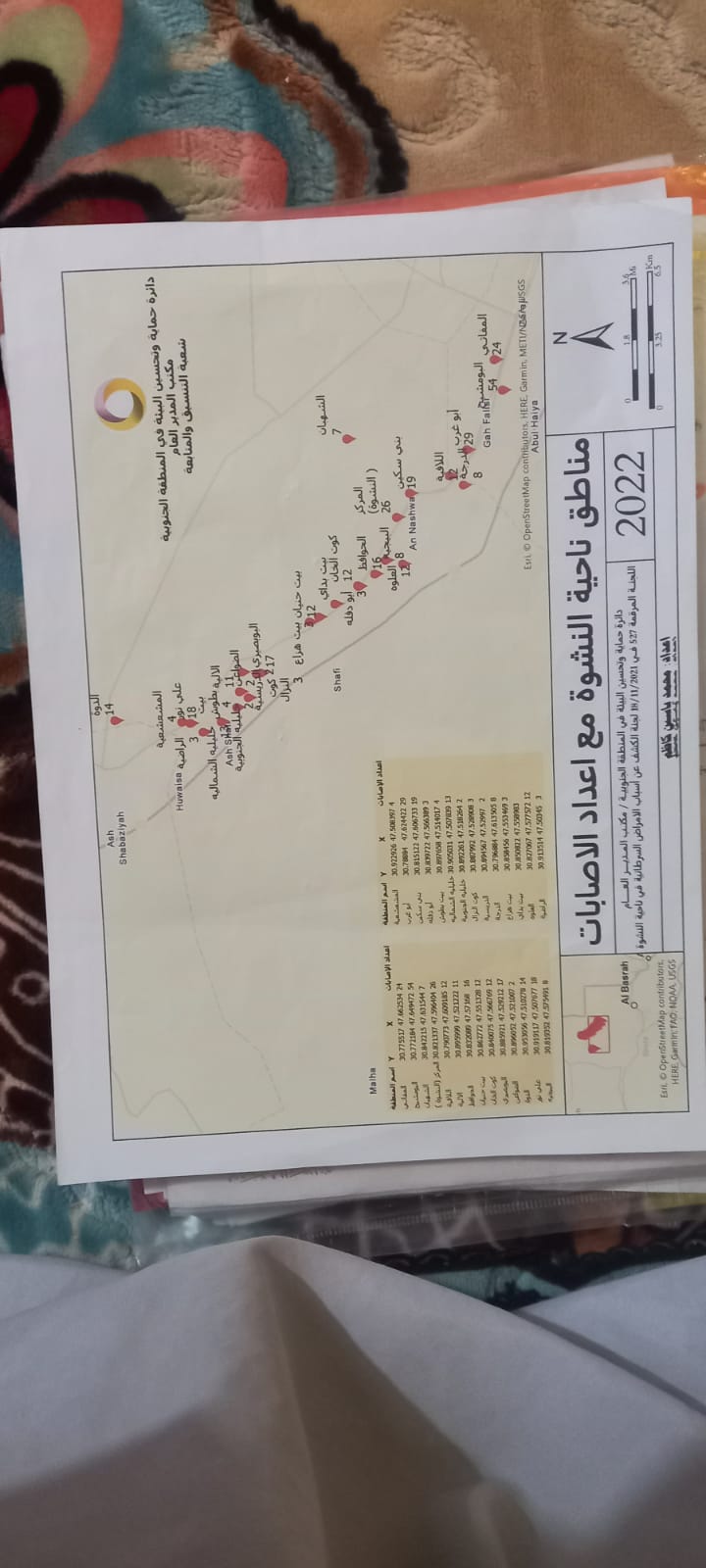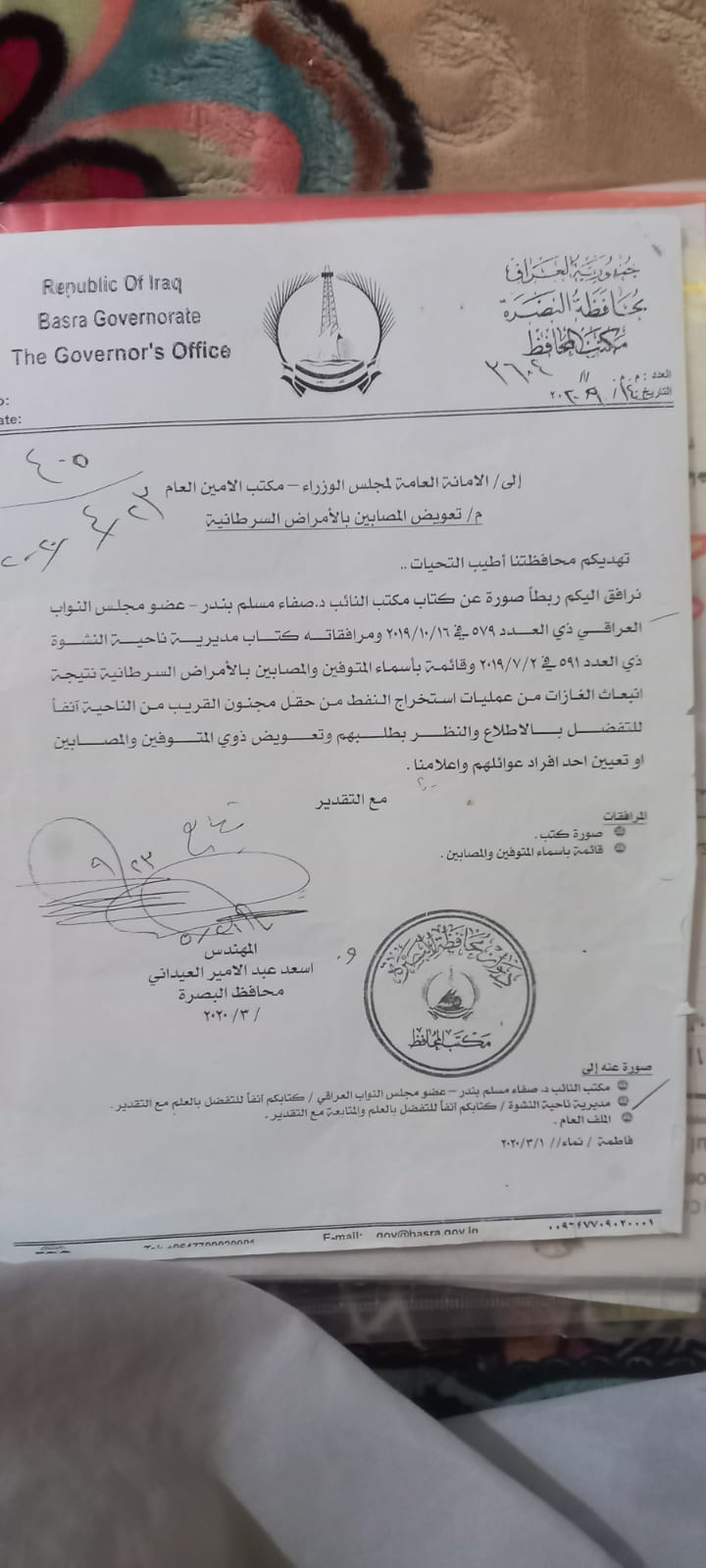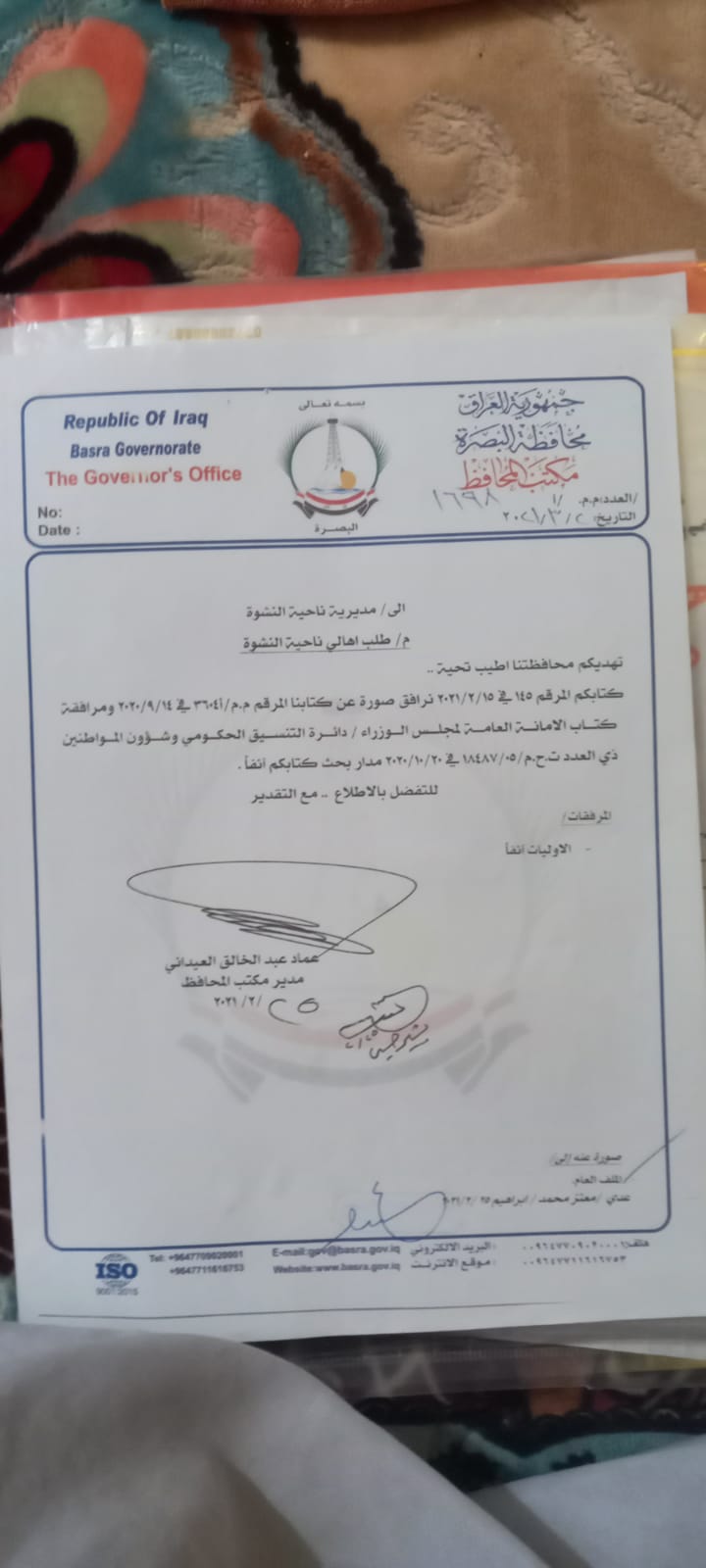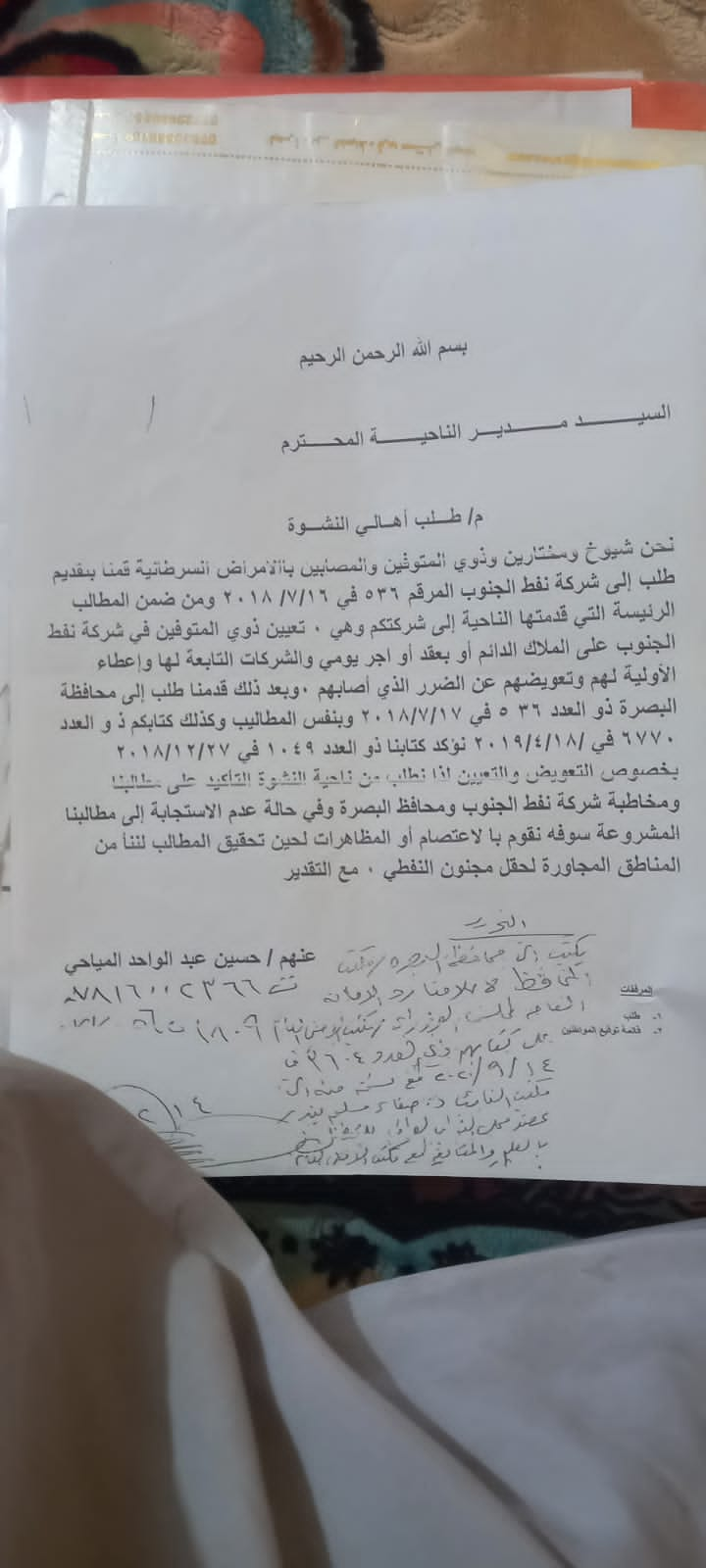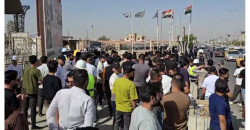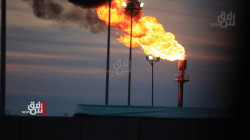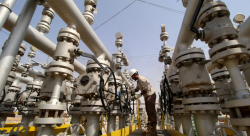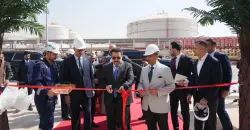Covered in black gold, Basra's "al-Nashwa" becomes the epicenter of cancer in Iraq
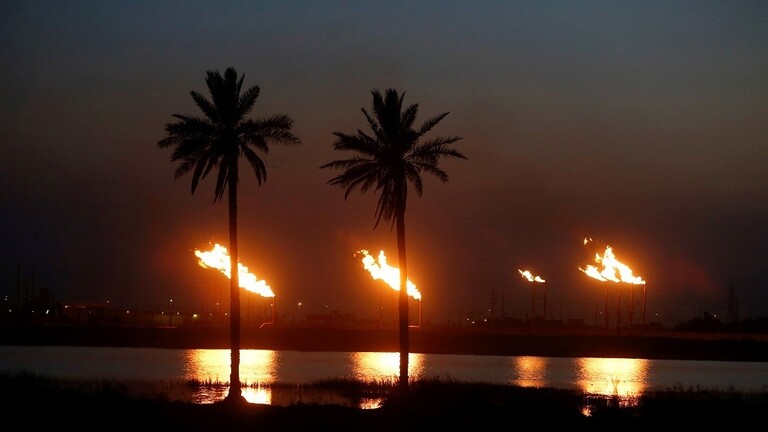
Shafaq News / In the southern oil-rich Iraqi governorate of Basra where countless companies engaged in crude oil extraction, residents suffer from the spread of diseases, most notably cancer, due to the huge amount of pollutants emitted in the air, water, food, and soil.
Basra, the focal of oil production in Iraq, includes "the five largest oil fields" and covers "65% of the gas currently burned," according to World Bank data.
According to the most recent World Bank data, Iraq uses more than 17 billion cubic meters of gas annually, second only to Russia, accounting for around 10% of total global carbon dioxide emissions.
The Basra Gas Company currently processes most of the associated gas at a rate of one billion mqm, from three oil fields in Basra. Basra Gas is a private company with shares divided into three parties; the British company Shell (44%), the state-owned South Gas (51%), and Mitsubishi (5%).
A report published by The Independent quoted experts saying that the burning of gas associated with oil extraction is the main factor of climate pollution, posing an imminent danger to the health of those living nearby, causing asthma, lung and skin diseases, and cancer.
The report stated that Iraq is one of the countries that continues this practice, and Basra – the governorate in which Abdul Wahid district is located – is the most affected area in the country. However, the population has denounced the danger of the situation, which causes the death of children, the elderly, and even young people.
Al-Nashwa and cancer
Al-Nashwa district, located within Basra governorate, is a vivid example of the residents' suffering, as it records a continuous increase in the number of cancer cases.
Despite government guarantees that radiation is present in all 32 districts, it has yet to pinpoint what is causing the outbreak of these diseases among the population, who blame the oil fields for their plight.
Al-Nashwa district, 45 kilometers from Basra's center, is home to 35-40 thousand people "who began to develop malignant diseases during Iraq's invasion of Kuwait in the 1990s, and the subsequent bombing of Iraqi military troops stationed in the district at the time. On the other hand, those who survived the bombing were not immune to the radioactive residues that cause cancer, "according to Walid Mutar al-Mayahi, the district's director.
Unknown injuries
Al-Mayahi stated, "Following Shell's investment in the Majnoon oil field in 2010, malignant diseases grew dramatically due to hazardous gas emissions from the burning of gas near agricultural drains, where some of the shafts are only half a kilometer away. After filing appeals with the execution corporation, some were transferred, but others remain in the district to this day."
He continued, "As a result, during Mustafa al-Kadhimi's government, a fact-finding committee was formed, and a complete study of water, air, and soil was carried out. The committee discovered a percentage of radiation in the district but did not name the entity accountable for the malignant diseases that impacted over 400 persons, some of whom died. On the other hand, citizens blame gas combustion and the Shell company, which denies and verifies that it has devices to monitor environmental pollution."
The district director of al-Nashwa urged the federal government to "follow up on the work of the committee, which has yet to submit its report, as well as to redress the families of the deceased with fair compensation and employ them in oil companies, in addition to opening a private hospital for the residents."
Moreover, western investigations have previously demonstrated that dozens of oil fields where major oil companies operate, such as British Petroleum (BP), ENI, ExxonMobil, Chevron, and Shell, do not declare the millions of tons of emissions resulting from burning the gas that accompanies oil production in them.
Earlier, Ihsan Abdul Jabbar, the former Iraqi oil minister, urged all contracted companies operating in the oil fields to follow international standards, in response to concerns about a spike in cancer cases owing to emissions.
32 endemic areas
Furthermore, Hussein Abdul Wahed, the district's representative for cancer patients, stated that "cases of cancer continue to arise in the area, seven residents, including two children, died of cancer last month, and new cases were also recorded this month."
"The injuries are dispersed in varied numbers to all the district's 32 areas," he added, noting that "the report of the committee that came to Basra is still circulating between the presidency of Basra University and the governorate's environment directorate."
Polluted environment
According to environmental expert Mohamed Abdul Hamid, pollution is one of the primary causes of human disease and environmental damage, beginning with simple diseases such as skin allergies, eyes, and respiratory system, to cancers, and chronic diseases to humans and the environment.
Abdul Hamid added, "direct exposure to carbon dioxide, nitrogen oxide, sulfur dioxide, and hydrocarbon gases from oil factories, electric power plants, or oil refineries, which are all primary sources of carcinogenic gases, creates long-term damage to the body."
He continued, "There are immediate effects, such as allergies, rashes, or breathing issues. However, those injuries could lead to cancer or incurable diseases."
He emphasized that "water pollution with oil or other materials, and not adequately treating them, leads to infection of the digestive and circulatory systems with various disorders."
Meanwhile, Wim Zwijnenburg, a researcher at the Dutch Peace Organization (PAX) and a contributor to the investigative journalism website Bellingcat, said that "Basra alone burns more gas than Saudi Arabia, China, India, and Canada because it is home to the Rumaila oil field - the third largest oil field in the world - warning that Basra will be unlivable within the next ten years.
According to Ministry of Health data, more than 30,000 cancer patients were diagnosed last month and are presently undergoing treatment in Iraq. Cancer is one of the country's top ten causes of death, with an incidence rate of fewer than 80 cases per 100,000 residents.
